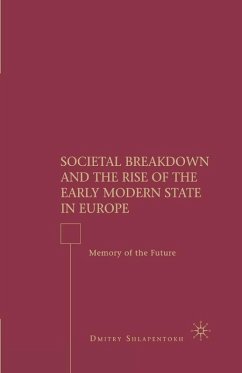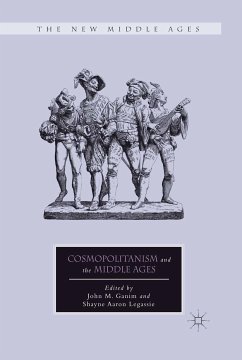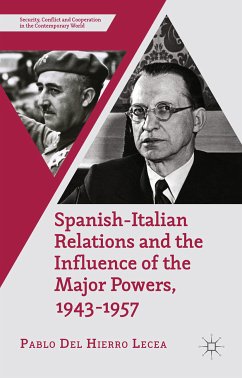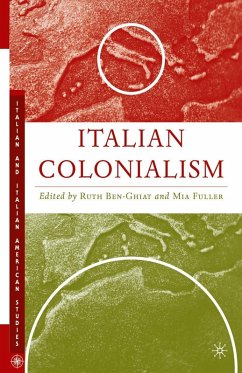
A. Righi
eBook, PDF
Biopolitics and Social Change in Italy (eBook, PDF)
From Gramsci to Pasolini to Negri

PAYBACK Punkte
20 °P sammeln!






By placing the social dimension of labour at the base of the discourse of life, this book engages with the work of key intellectual figures and reconstructs a critical genealogy of the notion of biopolitics from the point of view of twentieth and twenty-first century Italy.
Dieser Download kann aus rechtlichen Gründen nur mit Rechnungsadresse in A, B, BG, CY, CZ, D, DK, EW, E, FIN, F, GR, HR, H, IRL, I, LT, L, LR, M, NL, PL, P, R, S, SLO, SK ausgeliefert werden.
ANDREA RIGHI Assistant Professor of Italian and Humanities at the University of Puerto Rico, Mayagüez.
Produktdetails
- Verlag: Palgrave Macmillan US
- Seitenzahl: 198
- Erscheinungstermin: 14. August 2011
- Englisch
- ISBN-13: 9780230339392
- Artikelnr.: 46752836
"Andrea Righi offers a compelling, energetic mapping of the vicissitudes of biopolitics in the work of Italian philosophers from Antonio Gramsci to Antonio Negri. He provides a critique of modern political theory and its application that need not be viewed in restrictive terms as valid only for contemporary Italy. Written with appealing brio and evident pedagogical lucidity, this book easily could be used in any graduate seminar or advanced undergraduate class on modern and contemporary Italian history, philosophy, political thought, or anthropology. In addition, it could be made a stimulating focus of any course on Marxism, post-Marxism, globalization, ecology, biopolitics, or contemporary women s studies." - Alessia Ricciardi, associate
Mehr anzeigen
professor, department of French and Italian and program in Comparative Literature, Northwestern University"How and when did we forget the biological being? As societal relations began to define biological bodies in terms of use, labor, and commodities, the living politics of being seemed to disappear. However, the intricacies of social transformation, and the involvement of those same "disappeared" groups, are as multifaceted as the living organisms that they involve; this is the ground that biopolitics treads. Finding support in the rich tradition of Italian political philosophy, Righi makes of Italy a relevant and illustrative case for the formation, rise and elaboration of the biopolitical. By extending a network of political philosophical work that finds renewed energy in Antonio Gramsci, makes a case for the innovative strategies of Italian neo-feminists of Lotta femminista, and reviews Pasolini s revolutionary pessimism, Righi suggests an Italy that has been a fertile ground for the elaboration of late Foucauldian thought by philosophers such as Giorgio Agamben, Antonio Negri, Paolo Virno and Roberto Esposito. Righi s book is valuable addition not only to Italian Studies but also to the contemporary discourse on biopolitics and philosophy." - Pasquale Verdicchio, Associate Professor of Italian and Comparative Literature, University of California, San Diego"In the current scholarship on biopolitics and Italian thought, little attention has been paid to the social and historical context of twentieth century Italy that so deeply informs the work of thinkers like Antonio Negri, Giorgio Agamben, and Roberto Esposito. Happily, that is no longer the case with the publication of Andrea Righi s breathtaking genealogy of the origins of biopolitical reflection in modern Italy. Both a historical primer of Italian social movements across the last century and an up to the minute explication of contemporary Italian philosophy, Righi convincingly shows how profoundly current debates on biopolitics have been influenced by a number of last century's greatest Italian intellectuals. Absolutely a must-read for anyone interested in biopolitics and Italian thought today." - Timothy Campbell, Professor, Department of Romance Studies, Cornell University
Schließen
Für dieses Produkt wurde noch keine Bewertung abgegeben. Wir würden uns sehr freuen, wenn du die erste Bewertung schreibst!
Eine Bewertung schreiben
Eine Bewertung schreiben
Andere Kunden interessierten sich für











